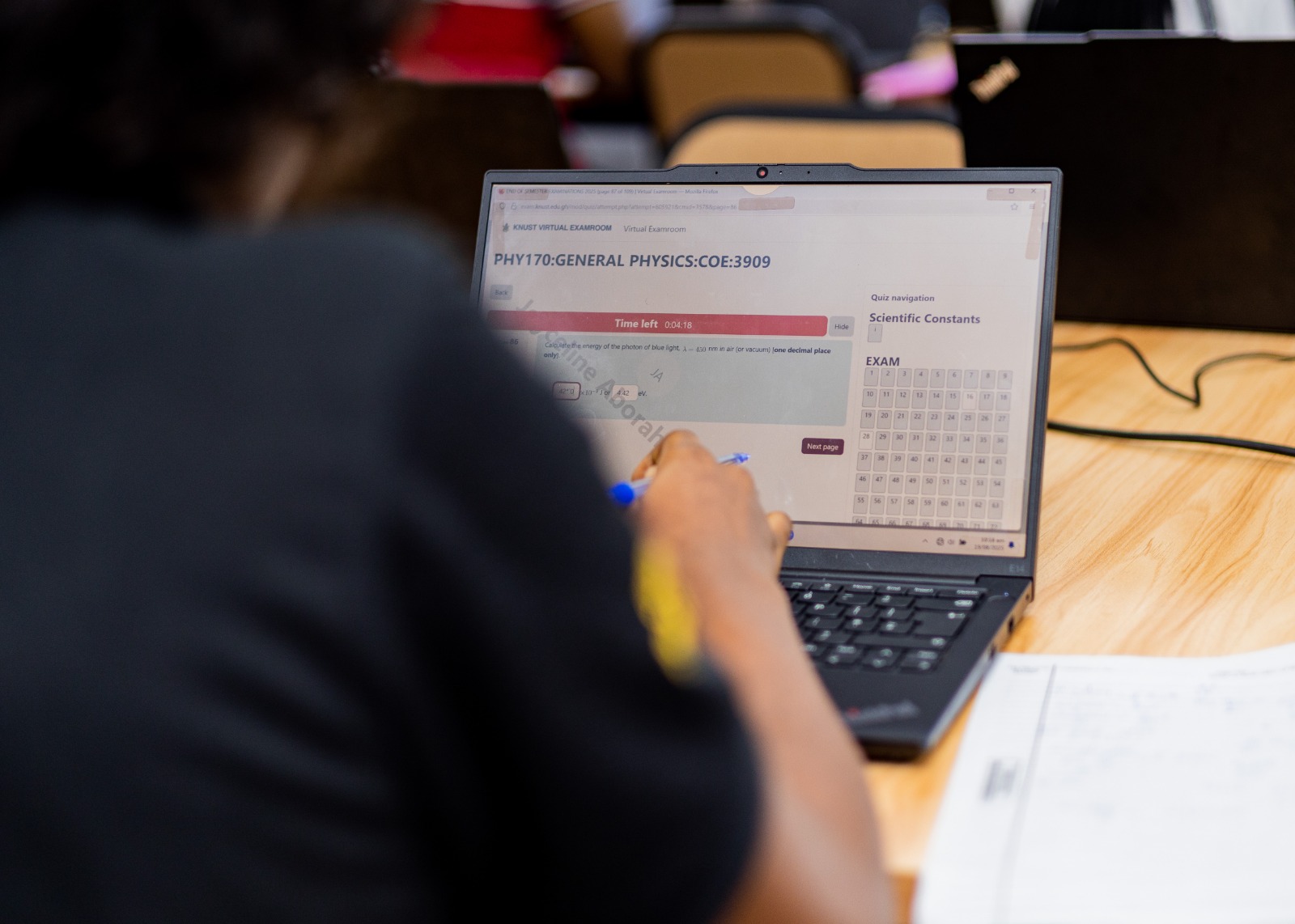Kwame Nkrumah University of Science and Technology (KNUST), Kumasi has more than doubled its computer-based examination coverage, with over 41,700 students writing end-of-semester exams digitally this semester, up from fewer than 20,000 last academic year. The expansion marks one of the largest digital assessment rollouts in Ghana’s tertiary education sector.
Led by Vice Chancellor Professor (Mrs.) Rita Akosua Dickson, the initiative reflects KNUST’s commitment to innovation in teaching, learning, and assessment. From just 75 courses examined digitally last year, the number has risen to 105 this semester.
Scaling up Infrastructure and access
The transformation has been driven by deliberate investment in infrastructure and planning. According to Professor Eric Appau Asante, Director of the E-Learning Centre, 11 computer laboratories across campus now serve as examination centres, including facilities at the Main Library, College of Science, Medical School, Faculty of Pharmacy, and College of Engineering.
“Previously, Library Mall could take a maximum of 270 students at a time. With the addition of 200 more computers by the Vice Chancellor, that space now accommodates 470 candidates in a single sitting,” Prof. Asante said.

In addition to fixed labs, open halls have been equipped with laptops for students without personal devices, ensuring inclusivity.
BYOD model and student support
KNUST has also introduced a Bring Your Own Device (BYOD) model, allowing students to use their own laptops in secure digital environments. To support students lacking devices, the University rolled out the SONSOL Project, which has distributed laptops to hundreds of students.
“This hybrid model, university-owned and student-owned devices, has allowed us to scale up without excluding anyone,” Prof. Asante added.
Safeguarding integrity and quality
Maintaining examination integrity has been central to the rollout. The Office of Quality Assurance and Planning, led by Professor John Jerry Kponyo, has worked closely with the E-Learning Centre and University Information Technology Services (UITS) to ensure fairness and reliability.

Exams are conducted on a locally hosted system, independent of external internet connectivity. Students undergo biometric verification, ID checks, and log in with unique credentials. Each exam interface carries a personalized watermark, and randomized questions with privacy filters help prevent malpractice.
Training faculty and students
Faculty members have received training in online item writing to ensure quality digital questions, while students have participated in orientation sessions to familiarize themselves with the exam platform.
“These interventions have reduced anxiety and technical errors, and increased confidence among both students and lecturers,” Prof. Kponyo noted.
Managing challenges and looking ahead
To mitigate power disruptions, exam centres are backed by battery-powered laptops, solar installations, and standby generators. The University reports that these systems have ensured uninterrupted sessions across all venues.
Currently, nearly 47 percent of all examinations at KNUST are delivered digitally. The long-term goal is to migrate all common core courses, those taken by students across disciplines, onto the computer-based platform.
“As a science and technology university, KNUST must lead in embracing innovation,” said Vice Chancellor Prof. Rita Akosua Dickson. “This transition is not just about technology, it’s about enhancing academic excellence, transparency, and efficiency.”

















